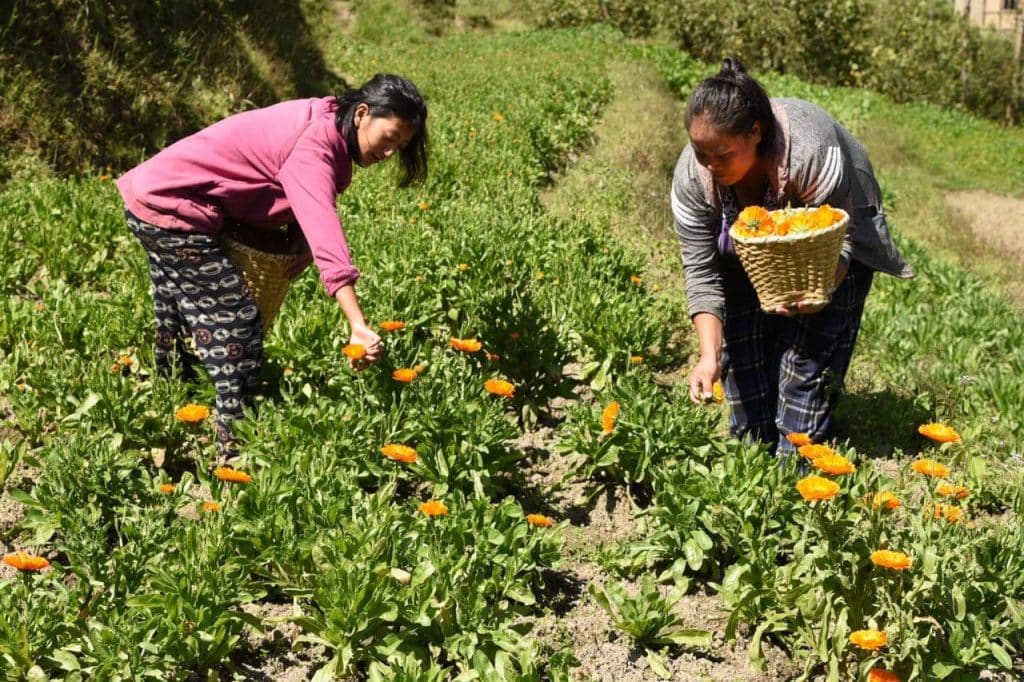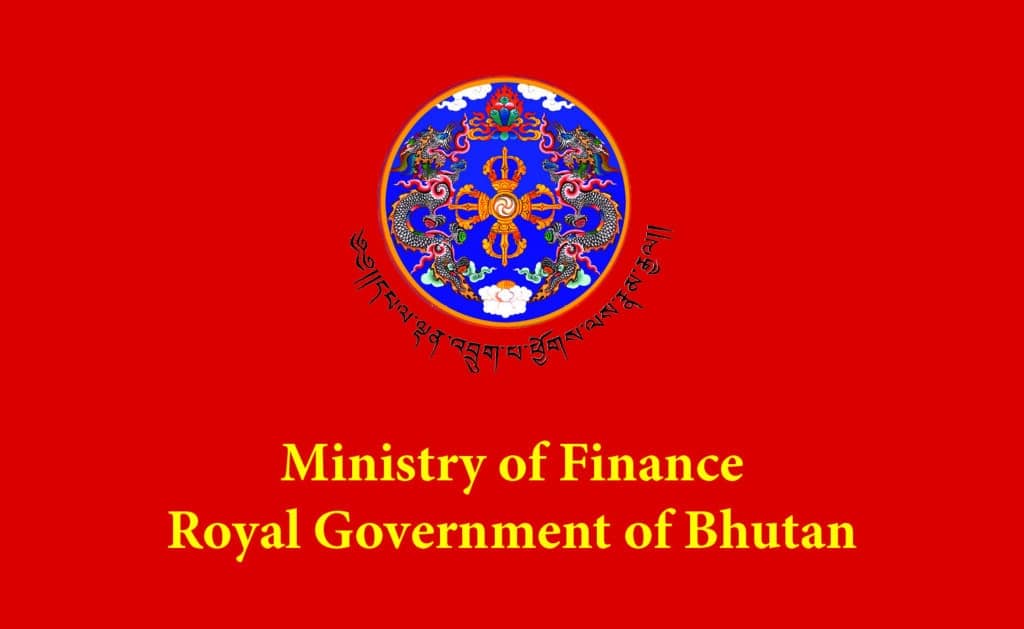The three women who decided to stay back in their community after their studies have come up with new ideas to create sustainable livelihoods for themselves and their families
There is a Japanese saying, if the flower is to be beautiful, it must be cultivated.” This was one of the many things about growing flowers that Choki Selden, from Goen Shari, Punakha, heard from her grandparents. It inspired her to take up organic floriculture cultivation in her village.
One such place where the flowers are grown for commercial purposes is Drachukha village, on the way to Gasa, opposite side of Tsephu Nye.
A place is usually abuzz with excitement at this time of the year. With the harvesting season just around the corner, Choki and her two friends will be busy plucking beautiful flowers from their fields.
These three women who decided to stay back in their community after their studies have come up with new ideas to create sustainable livelihoods for themselves and their families, which made into a source of income in since 2017.
Choki Selden is the founder of the Drachukha flower group, three women including Choki, Wangchuck, and Yangden have pulled together a passionate, inspired, and dedicated team. They have drawn up plans to help the community.
“Creating authentic food products with naturally grown herbs, spices, and vegetables from their community, completed with precious edible flowers,” Choki said adding that not only has the flower business prospered but also provided a source of livelihood to the women group.
Choki shared that two years ago, they planted flowers on three different farmlands named A, B, and C. They cultivate flowers on a rotational basis. “As the farmlands stretch wide, we hired the villagers and plant the seeding in the fields,” she said.
Around June, the flower group starts to plant the seeds. “We keep two years gap to cultivate the flowers for each field, so, after two years again we are planting it varieties of flowers,” she said adding after harvesting the flowers, they plant soya beans.
Once the plantation is done, Choki shared that they have to weed often and it takes almost seven to eight months to fully bloom.
“It is the Buddhist belief that not only one can accumulate merits by doing goods but taking good care of flowers. it does have other benefits too,” she said.
After seven months, the flower bloomed into a variety of colors such as Red, Pink, and Blue were beautiful adoring the place in the early spring.
“Once the flowers have completely bloomed, the women group hires workers from the village and starts to harvest the flowers,” Choki said adding Bhutan has the ambition to become the organically farmed country in the world, resonating with the Buddhist philosophy of living in harmony with nature and all sentient beings.
However, the flower plantation works in Drachukha village have also immensely benefited the community. The Drachukha Flower Group will grow, dry, and market organic edible flowers.
“We are earning Nu 20-30,000 per month and we are giving almost Nu 70-75,000 to the community for various work in the village. Most of the funds were used to make farm roads in the village,” she said.
Through this project, Choki said that she wants to empower women and young people in the villages and help reverse rural-urban migration in the country.
“One of the unique products of the community helps us build a wooden processing unit. These have taken part in establishing the first organically-certified flower farm in Bhutan,” she said.
Choki said that she will prove that farming can provide a colorful and exciting future for Bhutan’s young people, who are currently leaving farms and flooding the towns.
According to the Drachukha community, our country wants to go organic and self-sufficient in food, community needs to make our farms more resilient and more productive.
“The products that can help to drive this change, we discovered the great potential of dried petals of flowers, which traditionally grow in our communities.”
One of the farmers who helped the flowers group during harvesting time said that the dried petals have an increasing demand in markets in other countries as ingredients in innovative food and beverage products.
“Growing these valuable flowers among many other crops for our home consumption and the local market has helped us to transition our community into a place where young people stay here and work in the village,” he said.
Drachukha is a remote farming village located in the middle of a dense and wild highland old-growth forest in central Bhutan. Drachukha has almost 20 households, 53 farmers, and a total of 114 family members.
Meanwhile, most of the fertile farmland is used to cultivate a variety of crops for household consumption, so villagers depend less on imported foods.
Wangchuck Dema, another woman in the group said that life in the village is hard. But our strong sense of community and growing edible flowers gives us more than enough reason to try sustaining ourselves and our families in our village.
“Cornflowers, marigolds, sunflowers, and roses grow in our village. These same flowers could also serve as a valuable source of income,” she said adding they use compost and cow dung as a fertilizer and no chemicals.
She shared that our goal is to organically grow, dry, and bring to market the flower petals that already grow naturally in our village, in crop rotation with other organic grains, vegetables, and herbs.
“Our farm has been an EU-certified organic farm in Bhutan, making an important contribution to the country’s goal to go 100% organic,” she said.
Further, Tshering Yangden and Wangchuck Dema two young women from Drachukha graduated class XII but decided to go back to our community to farm our parents’ lands. “We are the three sole remaining women of our generation farming in our village,” they said.
Tshering Yangden said that three of us have been part of a Farmers’ Cooperative for a couple of years, and we have been growing spices and herbs in the village on a small scale for a local food business in Thimphu.
“With successfully demonstrating the feasibility of this project, we will encourage other households in the village to join us in growing flowers on a larger scale,” she said.
She shared that flowers will be used as ingredients in food products but it is believed to have medicinal qualities. “In the village, we have a long tradition of using flowers as immune boosters as well,” she said.
However, the flower group has developed a partnership with Druk Meto. Where part of the harvest is exported to Switzerland and another part is the value added to products for the local market.
Choki Selden, the founder of the Drachukha flower group said that if you want to improve agriculture practices in the country and support farmers to be sustainably self-sufficient, we need to help each other to work together.
The story is funded by Bhutan Media Foundation’s (BMF) civil society reporting grant

Kinley Yonten from Punakha














